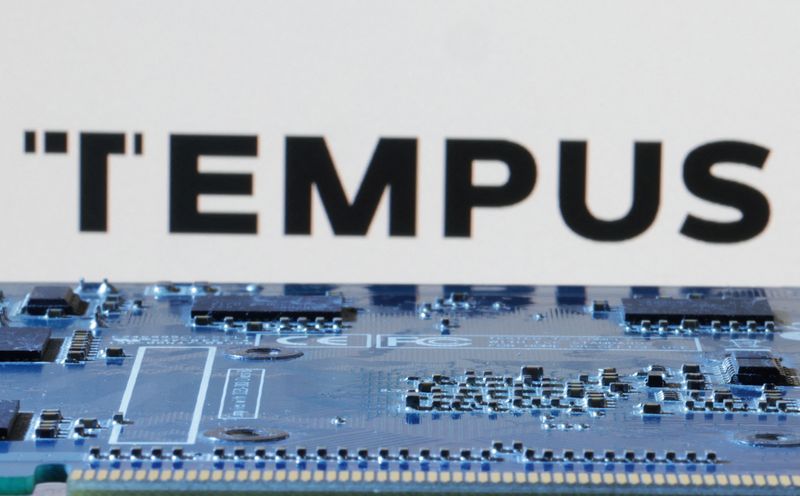(Reuters) -Wall Street brokerages started covering SoftBank (TYO:9984) Group-backed Tempus AI on a bullish note on Tuesday, betting that the company's AI-powered library of clinical and molecular data could lead to more powerful diagnostic and test kits.
The Chicago, Illinois-based company sells genomic diagnostics tests across oncology and other areas, including neuropsychiatry, radiology and cardiology to clinicians and hospital systems.
Seven brokerages, including J.P.Morgan, Morgan Stanley, BofA Global Research and Stifel initiated coverage with a "buy" or "overweight" rating, with the highest price target of $50 by TD Cowen.
The brokerages, which were underwriters for Tempus' initial public offering, issued their first ratings after the so-called "quiet period" ended on Tuesday.
The upbeat ratings lifted the shares of the company as much as 7% to $35.75. The stock has lost 17.5% since the closing on June 14, its debut day, till the end of trade on Monday.
J.P.Morgan forecasts roughly 33% revenue growth for Tempus through 2027. It expects the company to turn a core profit by the second half of 2025.
Tempus AI's net loss widened to $289.8 million in 2023 from $214.1 million a year earlier, while total revenue jumped 65.8% to $531.8 million.
However, revenue from its AI applications business constituted about 1% of the total revenue, according to a regulatory filing. Tempus described its AI applications revenue as "immaterial".
The "uniquely combined clinical genomic data, which the company has successfully monetized in the form of licensing agreements with pharma and biotech customers" separates Tempus from rivals, according to J.P.Morgan.
Morgan Stanley expects revenue growth of 27% through 2028, and expects the company to break-even on core profit by 2027.

The brokerage noted that if competitors tried to grow their own database, it would "likely prove to be costly, cumbersome and time-consuming efforts".
BofA Global Research said there is space for Tempus to further expand the scope of the existing relationships with biotech and large pharma companies as well as increase the number of new customers.